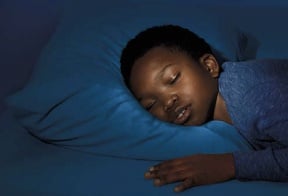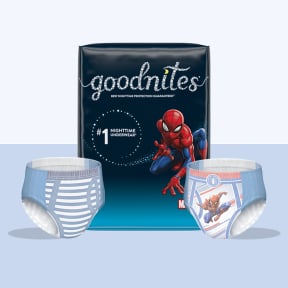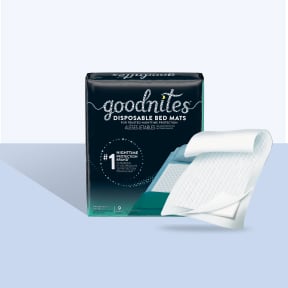
Should My Potty-Trained Four-Year-Old Still Be Wet At Night?
Most children learn to stay dry at night between the ages of 3 and 5, but for some it can take a little longer. Approximately one in five children of 4-and-a-half-year-olds wet the bed at least once a week. More than three quarters of children are fully potty trained by the age of six, although children can wet the bed into their teens.
What’s The Best Way To Help My Child With Night-Time Accidents?
The best way is with positive reinforcement – making them feel good when they use the toilet successfully and offering reassurance, love, and cuddles when things don’t go according to plan. Another great tip is to watch out for dryer nights for at least a couple of weeks before tackling nighttime training.
Why Does My Four-Year-Old Wet The Bed Every Night?
There are several reasons why your child might wet the bed at this age.
- Stage of development: Bedwetting at this age is perfectly normal! Some children take a little more time to recognize the feeling of needing to go to the bathroom.
- Family: in some cases, bedwetting is hereditary.
- Stress and changes: things such as moving home and school, having a new baby, bereavements, and other stressful situations can cause kids to wet the bed.
- Medical reasons: a urinary tract infection (UTI), constipation, and diabetes can cause bedwetting
Are There Things We Should Do To Help Prevent Night-Time Accidents?
Your main mission is to help your child go to bed worry-free! Don’t let anxiety over bedwetting spoil their fun. Here are some practical, supportive, and protective steps you can take to help your little one have a dry night’s sleep and wake up feeling awesome!
The Do’s And Don’ts Of Bedwetting Do...
- Allow them plenty to drink during the day.
- Encourage your child to use the bathroom regularly.
- Make sure they use the bathroom at bedtime – but don’t rush this visit.
- Be helpful and encouraging and consider rewards for dry nights.
- Make sure their route to the toilet is easy – leave doors ajar and a nightlight on.
- Leave a step stool in front of the toilet at night.
- Make sure your child has enough roughage, fruit, and vegetables in their diet to prevent constipation.
- Use positive and encouraging language.
- Use Goodnites® Bed Mats to put over the mattress and keep spare bedding and night clothes right next to the bed so that nighttime clean ups are quick and easy.
- Let your child wear Goodnites® Nighttime Underwear so that they can sleep better and not have to worry or stress about wetting the bed.
- Keep a record of wet and dry nights to see if there is a pattern.
- Help your child to get clean and dry calmly and quickly if they have an accident, so that they – and you – can get back to sleep. Getting stressed or angry will impact just as much on your sleep as theirs.
Don't
- Make a fuss - your child will learn to associate bedwetting with being in trouble. They may become unhappy or try to hide it from you.
- Compare your child to others in their age group; every child is different.
- Offer drinks with caffeine in them, including tea, coffee, energy or sports drinks, and cola. Caffeine is a diuretic, meaning it makes them pee more.
- Make your child feel ashamed or that they are ‘naughty’ for wetting the bed.
- Offer fruits before bedtime which are packed with fluid.
- Offer drinks directly before bedtime.
- Allow screen or other distractions from sleep in the bedroom.
Should We Use A Bedwetting Alarm?
Some doctors suggest a bedwetting alarm, but these can prove disturbing to a child, and could potentially interrupt sleep. It may also make them feel like they’re doing something wrong.
When Should We See A Doctor About Bedwetting?
Sometimes there may be a medical reason why your child has started to wet the bed at nights after they have been dry previously. See your doctor if they start to have wet nights when they were previously dry for at least six months and there have been no external stresses that might account for the change.







